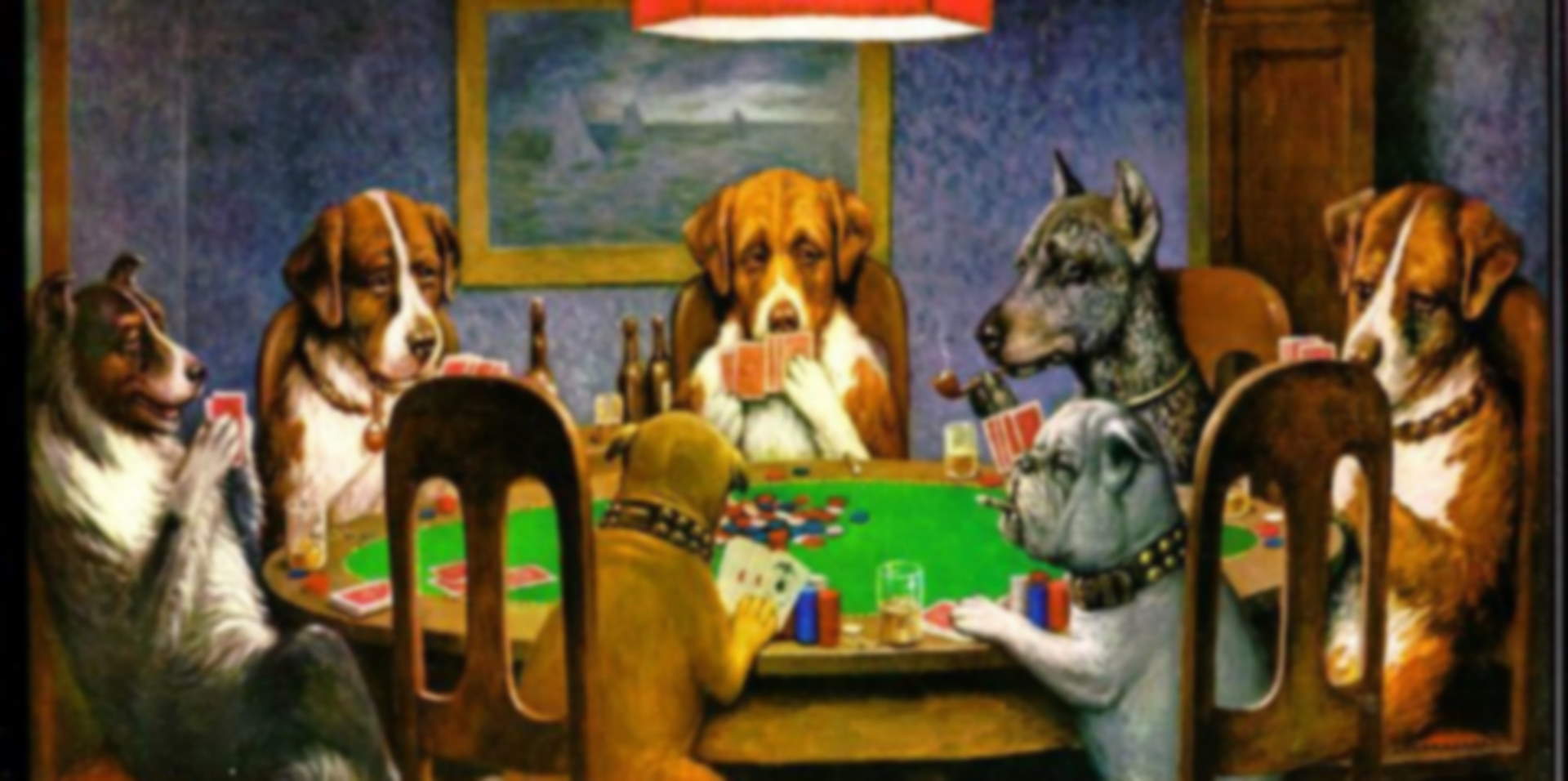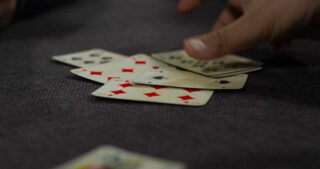

Before going further let me say that the vast majority of weak thinking, ignorant players are in fact big-time losers. Those few who have overcome their lack of knowledge are basically flukes. Studying the game of poker in a disciplined, academic way increases your chances of success at least tenfold. The only reason that 90 percent of the best players are not studious types (itâs more like 50 percent) is because they comprise a minority of aspiring players. But still it seems surprising that any great players can achieve what they do without having the knowledge that some of their opponents (and you) have. Again, how is this possible?
One obvious reason, of course, is that some of these players know a lot more than they let on. A famous, highly successful tournament player has publicly stated that he never read a poker book. However, he privately admitted to me that he had read all of mine! Then good players actually do know their stuff, but may not be articulate in expressing ideas. But this still leaves quite a few winning professional players who know nothing of logical syllogisms, canât calculate odds, and have no idea what game theory is. Yet they do better than you.
The reason this happens is because knowledge is not the most important thing when it comes to wining at poker. Did you think I felt otherwise? The reason I stress knowledge is because it is the one thing that can always be taught. And there is no excuse not to acquire that knowledge. Furthermore, everything being equal, or almost equal, the one with the knowledge will outperform the one without it. But it is entirely possible that someone with lots of poker knowledge is not almost equal in other aspects. Let us now look at these aspects one by one.
1. Hand Reading Ability
In bigger games, this is the single most important skill to have. Everyone plays about the right cards. Those who are best at figuring out their opponentsâ hands will be the ones who beat the game. When I say âreadingâ hands I mean either through deducing hands based on how a hand is played (the usual method) or the less reliable method of tells or reading a personâs state of mind (e.g. is he on tilt?). There are some unknowledgeable players who are especially talented at reading hands which counteracts many of their other defects.
2. Getting Others to Play Badly
It is well known that great play versus good play wins less than good play versus bad play. Thus, a good player who can induce his opponents to play badly will win more than a great player without this talent. Actually it isnât always talent. Sometimes a playerâs natural demeanor or appearance sends off signals to other players that will make them play too loose or too tight or some other bad way against them. These techniques can involve both physical appearance and demeanor as well as specific tactics of a hand. Players who splash around in the early rounds of no-limit games to create the impression that those late round big bets are worth calling is but one example. Conversely, a guy who conveys extreme tightness in a limit game to set up a bluff is another.
A world class female player once admitted to me that my knowledge and even my tactics in a poker game were a little better than hers, but that she would still win more, since players played worse against her. I would have to agree.
3. Fourth Street
When I say âfourth streetâ I am referring to hold âem. In the case of seven-card stud I would be talking about fifth and sixth streets. In all these cases there are often tricky situations where the correct play, but the far from obvious one, is to raise a player who has bet. These non-obvious raises are more likely to come up in multiway pots, but they occur in heads-up situations as well. This is not the time to go into details about when these raises with dubious hands are correct. However, given that they occur when there is already quite a bit of money in the pot, it should be obvious that the ability to recognize these situations is worth a lot of money. And while it is possible to study and learn when most of these situations occur, there are a few non-studious types who just seem to have an instinctive knack for recognizing them.
The above three ideas are the most important things that usually account for a few âdumbâ poker players to outperform the more knowledgeable ones. But there are other possible reasons as well.
4. Quick, Accurate, Instincts
There are quite a few players who are ignorant of the details of calculating probabilities, who nevertheless can give you an awful close estimate off the top of their head. In fact, some of them will beat most math students if that student has to estimate quickly rather than calculate. The same goes for coming up with the logically correct tactic in the heat of battle. The seat-of-the-pants player may well do better than the logician.
5. Canceling Errors
I have written about this before. Sometimes a little knowledge is a dangerous thing. I have often seen a bad player make a great play for the wrong reason. Usually this involves betting a hand a good player would not bet. Again, I wonât go into detail. But I do know many players who make a lot of these right plays for the wrong reasons, even one or two who are winners because of it.
6. Concentration
This in itself is not enough to turn a non-studious player into a winner. But it could be a reason why someone who knows a little less than you, does better than you. You know that you should be watching all the hands, even the ones youâre not playing. But do you?
7. No Tilting
Again, this is not something that by itself can turn a weak player into a winner. Furthermore, it is my experience that seat-of-the-pants, unknowledgeable players, are more, rather than less likely to go on tilt. Still this could conceivably be a reason why your greater knowledge does not bring with it greater rewards. He always plays his best. You donât.
8. Game Selection
Unlike No. 6 and No. 7 above, game selection is often a reason why a weaker player, (including ones who are weak because of bad study habits) does better than studious players (including intellectuals like you). It is common to see ego get in the way of smart, good players. I often see even some of my own best students, grind away at a terrible 80-160 game at the Bellagio, worth perhaps $50 an hour, when an easy $90 an hour can be earned a few feet away in $30-60. There are some book-dumb, but street-smart players who never make this mistake.
I believe the above has hit upon just about all the possible reasons why you, the dedicated, studious, intelligent poker player may not be doing as well as some more instinctive, seat-of-the-pants players who are embarrassingly ignorant of things they should know. Hopefully this article will give you some guidance into what you must do to right this wrong. You are not guaranteed of success because some instinctive players have such a great knack for the game and you may not. This is especially true regarding no-limit poker. But as I said before, if everything else is equal or almost equal, greater knowledge will win out. And yes, those who refuse to spend the few weeks obtaining this knowledge, regardless of their present results, truly are morons.
David Sklansky
Dieser Artikel erschien auf PokerOlymp am 04.05.2007.


